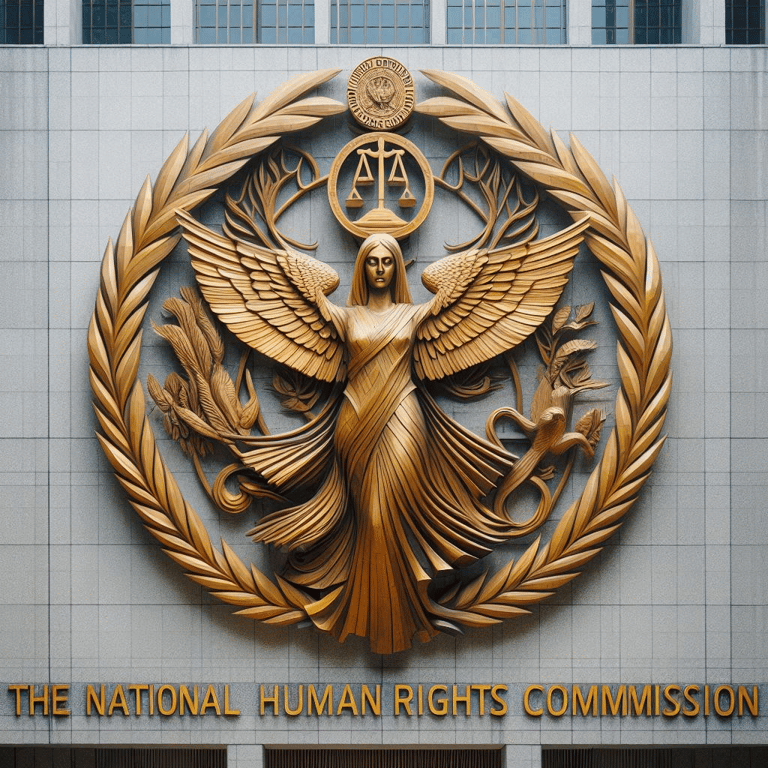The National Human Rights Commission: A Guardian of Justice and Equality
Ayush Khilwani
Career College of Law, Bhopal
This Blog is written by Ayush Khilwani, a Fourth-Year law student of Career College of Law, Bhopal


Human rights are rights that every human being has by his human dignity. These rights are available to all people from birth irrespective of their cast, religion, creed, nationality, sex, etc. Human rights have always been important for every human being as human rights are often considered the pillars of justice and equality.
The concept of human rights is as old as humanity, its systematic proclamation and declaration are more recent. Some important human rights are as follows:
· Right to Life
· Right to Education
· Right to Food, Health, and Work
· Right to Adequate Standard of Living
· Right to Freedom, Expression, Association, etc
As these human rights are very important for every human being so there is always a need for the protection of these rights. The UN General Assembly is responsible for defending human rights on a worldwide or international scale, and to do so successfully, it approved the Universal Declaration of Human Rights (UDHR).
In India, the National Human Rights Commission (NHRC) supervises the protection and promotion of human rights within the whole country.
Brief Overview of the National Human Rights Commission:
In the 1880’s, in India, human rights were continuously neglected. There was a breach of many human rights including the right to equality, so the Indian government realized that there was a need for protection of human rights in the country. So, the Indian government on the 28th of September 1993 passed the Protection of Human Rights Act for the protection of human rights in the country. There was still a need for effective enforcement of human rights in India. So, for proper protection of human rights Indian government on 12th October 1993 established the statutory body known as the National Human Rights Commission (NHRC). The main mission of this statutory body was to enforce human rights in the whole country and to deal with the protection and promotion of human rights. NHRC has its headquarters in New Delhi and at present, Vijaya Bharathi Sayani is the acting chairperson OF NHRC. NHRC is governed by the Protection of Human Rights Act, of 1993, chapters 2nd to 4th of this act provides provisions regarding NHRC.
For effective protection and promotion of human rights at the grassroots level, the state government of India also took the initiative and created its own state’s statutory body known as the State Human Rights Commission (SHRC). The first SHRC was established in September 1995, in Madhya Pradesh and was known as the Madhya Pradesh Human Rights Commission (MPHRC), now in India SHRC has been set up in 26 States.
Functions and Powers of NHRC:
As NHRC has the responsibility of protection and promotion of human rights NHRC has many functions and powers to perform. Section 12 of the Protection of Human Rights Act talks about the major powers and functions of NHRC. Some important functions of NHRC described under the provisions of Section 12 are:
· NHRC is empowered to investigate any complaint relating to violation of human rights in any part of India.
· NHRC can review the provisions of the Indian Constitution that safeguard human rights and NHRC can also suggest necessary measures or amendments to be taken in the constitution concerning human rights.
· NHRC can visit any organization or institution under the control of the state government to observe the living conditions of employees and NHRC can also make necessary recommendations to any institution concerning living conditions.
· NHRC shall encourage NGOs and other institutions working in the field of human rights.
· NHRC is also assigned with the function of spreading and promoting human rights awareness among various sections of society by conducting programs and seminars.
· NHRC is also empowered to conduct various research, NHRC even has a separate organ for conducting research in the field of human rights.
· NHRC also has a function to submit an annual report to the president of India and this report is also laid down before both houses of parliament.
NHRC has five different divisions which continuously work on the protection and promotion of human rights. NHRC also is responsible for the registration and disposal of complaints or petitions regarding the violation of human rights. NHRC oversees around 1 lakh cases each year due to which NHRC is also known as the watchdog of human rights in the country. In addition, eighteen Indian states participated in human rights initiatives and established their own human rights commission known as the State Human Rights Commission (SHRC) to address the protection and promotion of human rights at grass root level.
Conclusion:
Human rights are very essential part of the life of every human being. These rights shape human personality, and the protection of these rights is very crucial. In India, NHRC acts as a guardian of social justice and equality as it makes continuous efforts to safeguard and promote human rights within the whole country.
[i] References:
2) https://blog.ipleaders.in/nhrc/
3) https://nhrc.nic.in/about-us/organization-structures/specialized_divisions_and_staff
4) https://www.nextias.com/blog/national-human-rights-commission-nhrc/
5) https://www.khanglobalstudies.com/blog/what-is-nhrc-and-its-functions/
